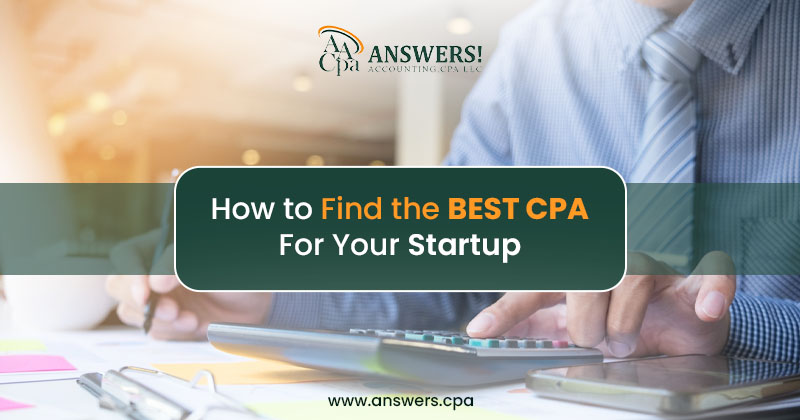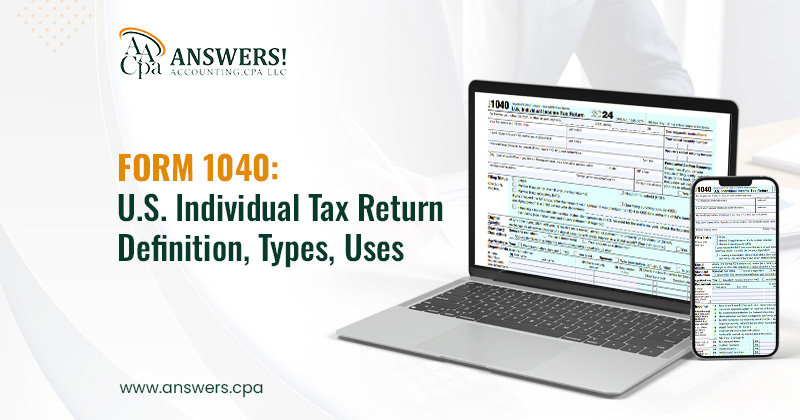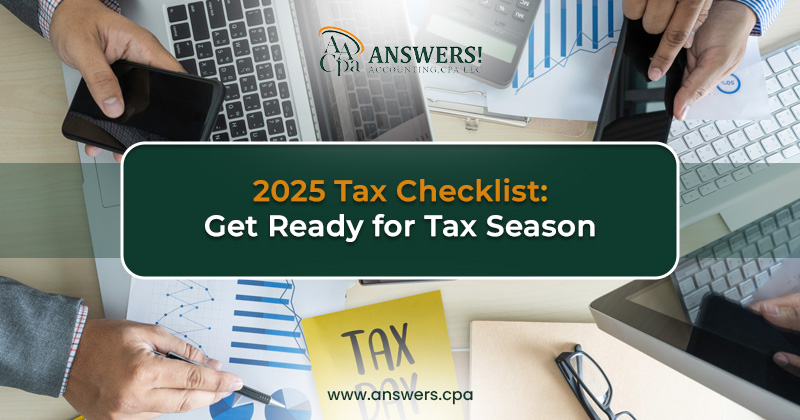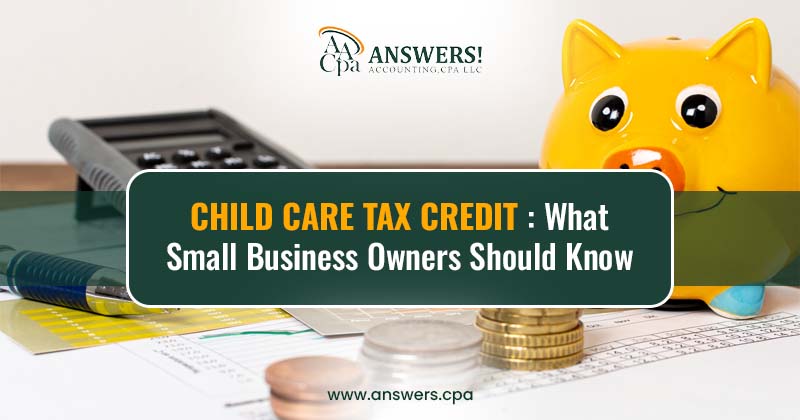10-Step Guide to Find a CPA for Small Business
Starting your own business is exciting, but it also comes with a lot of responsibilities—especially when it comes to money. As a founder, you might focus on product development, marketing, or raising funds. But one area you can't afford to ignore is accounting. That’s where a Certified Public Accountant (CPA) can make a big difference. A CPA does more than just file taxes. They help you understand your finances, keep your business legal, and plan for long-term success. But with so many CPAs out there, how do you find the right one for your startup?
In this blog, we’ll explain what a CPA does, why startups need one, and how to find the best fit for your business. Whether you’re just getting started or growing fast, these tips will help you choose a CPA who understands your goals and supports your success.
1. Choose a CPA with Startup Experience
Startups are not like other businesses. They often run on tight budgets, grow quickly, and may not make a profit in the first year. You need a CPA who understands these challenges. A CPA with startup experience knows how to handle things like early losses, investor funding, and setting up proper systems from day one.
Look for someone who:
- Has worked with other startups in your industry
- Understand venture capital, equity, and convertible notes
- Can guide you through the early stages of growth
This kind of experience helps them give better advice and spot problems before they grow.
2. Ask for Referrals and Read Reviews
A great way to find a trusted CPA is by asking people you know. Talk to other founders, your lawyer, or a business mentor. If they’re happy with their CPA, that’s a good sign.
Once you have a few names, do your research. Check online reviews and testimonials. Look at:
- Google and Yelp reviews
- LinkedIn profiles
- Accounting networks or directories
Pay attention to what clients say about communication, accuracy, and responsiveness. If a CPA is hard to reach or makes frequent mistakes, that’s a red flag.
3. Make Sure They’re Licensed and Qualified
In the U.S., a CPA must pass a national exam and get a license from the state where they work. Each state has a Board of Accountancy where you can check their credentials. You can also visit www.nasba.org to verify a CPA's license.
A good CPA may also belong to the AICPA (American Institute of Certified Public Accountants). This shows they follow high ethical standards and stay current with tax laws.
Ask for:
- Their CPA license number
- Proof of current certification
- Membership in professional organizations
These steps ensure you're hiring someone with the right knowledge and training.
4. Look for Tech-Savvy CPA's
Startups move fast and need real-time data. A CPA who uses cloud-based tools can help you stay on top of your finances anytime, anywhere. Instead of dealing with piles of paper, you’ll have quick access to clean, digital records.
Ask if they use tools like:
- QuickBooks Online or Xero for accounting
- Gusto for payroll services
- Expensify or Bill.com for managing receipts and bills
- Stripe or Shopify integrations if you sell online
These tools save time and reduce mistakes. They also make it easier for your CPA to share reports, handle taxes, and help with audits.
5. Choose Someone Who Communicates Well
It’s important to feel comfortable talking to your CPA. You’ll be discussing money, taxes, and legal matters—so good communication is key. Your CPA should listen carefully, explain things in simple terms, and respond quickly when you have questions.
Here’s what to look for:
- Replies to emails or calls within 1–2 days
- Explains accounting terms in plain language
- Checks in regularly, not just at tax time
If they talk in jargon or make you feel uncomfortable, they may not be the right fit for your startup.
6. Understand Their Pricing and Services
CPAs charge in different ways. Some charge by the hour. Others offer flat fees or monthly packages. Make sure you understand what you’re paying for and what services are included.
Ask these questions:
- How do you charge—hourly, monthly, or by project?
- What’s included in your fee?
- Do you charge extra for short questions or calls?
- Can I switch to a new plan as my business grows?
Don’t choose based on price alone. A good CPA can save you thousands in taxes and penalties, so the value often outweighs the cost.
7. Ask the Right Questions
When you first meet a CPA, treat it like a job interview. They will be handling one of the most important parts of your business—your money. Ask questions that help you understand their style, knowledge, and how well they understand startups.
Some smart questions to ask:
- What types of startups have you worked with?
- How can you help me plan for taxes throughout the year?
- What tools do you use for accounting and payroll?
- How do you stay updated on tax law changes?
- Can you help with financial reports for investors?
The right CPA will ask you questions too. They should want to understand your business model and your goals so they can offer helpful advice.
8. Look for a Long-Term Partner
Your CPA shouldn’t just be someone you see once a year during tax season. They should be a part of your team as your business grows. Choose someone who wants to build a long-term relationship and support your goals year-round.
A long-term CPA can help with:
- Hiring and payroll setup
- Planning for expansion or multiple locations
- Preparing for investor meetings or audits
- Budgeting and forecasting
If they seem interested only in your taxes, they might not be the best partner for long-term success.
9. Decide Between Local and Remote CPAs
Thanks to cloud accounting, your CPA doesn’t need to be in the same city or even the same state. Remote CPAs can offer great service, especially if they specialize in startups like yours.
Here’s a quick comparison:
Local CPA
- Great for face-to-face meetings
- Familiar with local tax rules
- Easier to visit their office if needed
Remote CPA
- More options, especially for startups
- Often more flexible with pricing and service
- May have deeper experience in your industry
Both can work well. What matters most is their experience, communication, and how well they fit your needs.
10. Trust Your Instincts
Sometimes, the decision comes down to your gut feeling. If a CPA seems trustworthy, knowledgeable, and easy to work with, they may be a great match. If something feels off—like poor communication, confusion about pricing, or a lack of interest in your business—it’s okay to keep looking.
You want a CPA who:
- Understand your business model
- Believe in your goals
- Cares about helping you succeed
Trust plays a big role in any professional relationship, especially when it involves your business’s finances.
Choose the Right CPA and Build a Strong Financial Future
Finding the right CPA isn’t just a to-do item, it’s a smart investment in your startup’s success. With the right CPA, you’ll gain confidence in your numbers, stay compliant with tax laws, and get expert advice tailored to your business goals. Take your time, ask the right questions, and look for someone who truly understands the startup world.
If you’re looking for a trusted CPA partner, Global FPO is here to help. We specialize in providing reliable accounting, tax, and financial services tailored to startups and growing businesses across the U.S. With our expert team, modern tools, and commitment to your success, we make it easy for you to stay focused on what matters, which is, growing your business.
Reach out to Global FPO today to find out how we can support your startup’s financial journey from day one.
FAQs
1. What does a CPA do for a startup?
A Certified Public Accountant (CPA) helps startups with taxes, bookkeeping, payroll, budgeting, and financial planning. They also offer guidance on business structure, investor reporting, and legal compliance.
2. Do I need a CPA even if my startup is small or just getting started?
Yes. Even small or early-stage startups can benefit from having a CPA. A good CPA helps you set up your finances the right way from the beginning.
3. How much does a CPA typically cost for a startup?
CPA costs vary based on services and location. Some charge hourly, while others offer flat fees or monthly packages. Prices can range from $100 to $400+ per hour, or $500 to $2,000+ monthly depending on your needs.
4. Can I hire a remote CPA, or should I choose someone local?
Both options can work well. A remote CPA can offer flexibility and often has experience with startups in different industries. A local CPA may know your state’s tax laws better and be available for in-person meetings.
5. How do I know if a CPA is qualified?
Check that the CPA is licensed in your state by visiting www.nasba.org or your state’s Board of Accountancy. Look for someone with startup experience, strong reviews, and membership in professional groups like the AICPA. Don’t be afraid to ask for proof of credentials.







